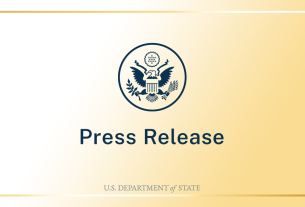Dhaka, Bangladesh – A recent survey conducted between April and July of this year has revealed that more than 16 percent of businesses in Bangladesh consider corruption to be the biggest obstacle to their operations. Despite the country’s significant economic growth and expanding industrial sectors, corruption continues to plague businesses, regardless of their size or the industry they operate in.
The survey, conducted by Bangladesh’s Federation of Chambers of Commerce and Industry (FBCCI) and other local economic research groups, paints a troubling picture of the challenges facing the country’s private sector. According to the findings, corruption affects businesses at various levels, including interactions with government officials, regulatory authorities, and even within the supply chain.
Widespread Impact on Businesses of All Sizes
Corruption is not limited to large corporations or state-owned enterprises; small and medium-sized enterprises (SMEs) are particularly vulnerable. Smaller businesses often struggle to navigate complex bureaucratic processes and frequently face demands for bribes or unofficial payments in exchange for permits, licenses, or favorable treatment. Many report that these practices significantly increase operating costs, discourage investment, and create an uneven playing field.
This problem is further compounded by the lack of transparency and accountability in government and business dealings. A significant portion of businesses also cited the inefficiency of legal systems and slow judicial processes as contributing factors to the persistence of corruption. When businesses encounter fraudulent practices or corruption, their ability to seek justice or remedy the situation is often hindered by lengthy court cases and lack of enforcement.
Economic Consequences
The continued prevalence of corruption has severe implications for Bangladesh’s economic future. The country has made strides in recent years, with industries like textiles, manufacturing, and agriculture contributing significantly to its GDP. However, the persistence of corruption poses a major deterrent to foreign investment, which is crucial for sustaining growth.
International companies, in particular, are hesitant to invest in markets where corrupt practices can increase operational risks and create additional costs. Additionally, corruption often hampers the efficiency of government spending, particularly in areas like infrastructure development, education, and healthcare, where funds intended for public goods are diverted for personal gain.
Economists argue that without a concerted effort to combat corruption, Bangladesh’s ambitious development goals—including achieving middle-income status by 2031—could be undermined.
The Government’s Response and Challenges Ahead
In response to the survey findings, the Bangladeshi government has reiterated its commitment to fighting corruption through various initiatives, such as strengthening anti-corruption bodies like the Anti-Corruption Commission (ACC) and implementing digitalization programs to improve transparency in government processes. The government has also emphasized its efforts to improve the ease of doing business and simplify regulatory procedures.
However, critics argue that these reforms have been insufficient in addressing the deep-rooted nature of corruption in both public and private sectors. Many are calling for stronger enforcement of anti-corruption laws, along with greater political will to target corrupt officials, prosecute high-ranking individuals involved in graft, and instill a culture of accountability.
The lack of political and institutional will to address systemic corruption has led to growing frustration among the business community and civil society groups, who argue that incremental reforms are unlikely to yield meaningful change without comprehensive overhauls of government institutions.
The Way Forward: Transparency and Accountability
To address the issue of corruption, experts believe Bangladesh must prioritize greater transparency, improved governance, and better enforcement of anti-corruption laws. Reforms that enhance digital government services, reduce discretionary powers, and establish clear, efficient systems for business registration, tax collection, and regulatory compliance are essential to creating an environment where businesses can thrive without the fear of bribery or fraud.
International watchdogs and financial institutions, such as the World Bank and Transparency International, have also stressed the need for Bangladesh to adopt stronger anti-corruption measures to improve its ranking on global indices of governance and ease of doing business. As the country continues to emerge as a regional economic powerhouse, tackling corruption could be a key factor in unlocking its full economic potential.
Conclusion
Despite significant economic progress, corruption remains a critical obstacle for businesses in Bangladesh, affecting the overall business environment and deterring investment. With more than 16 percent of businesses identifying corruption as the most significant challenge, it is clear that both public and private sector reforms are urgently needed. For Bangladesh to sustain its growth trajectory and attract the global investment necessary for its future, tackling corruption will remain one of the most pressing issues for the government and business community alike.
Sources:
- Bangladesh Federation of Chambers of Commerce and Industry (FBCCI) – Survey on Business Climate, 2024
- Transparency International Bangladesh – “Corruption Perceptions Index” (2024)
- World Bank – “Bangladesh Country Report” (2024)
- The Daily Star – “Corruption Continues to Hamper Business Growth in Bangladesh” (2024)



